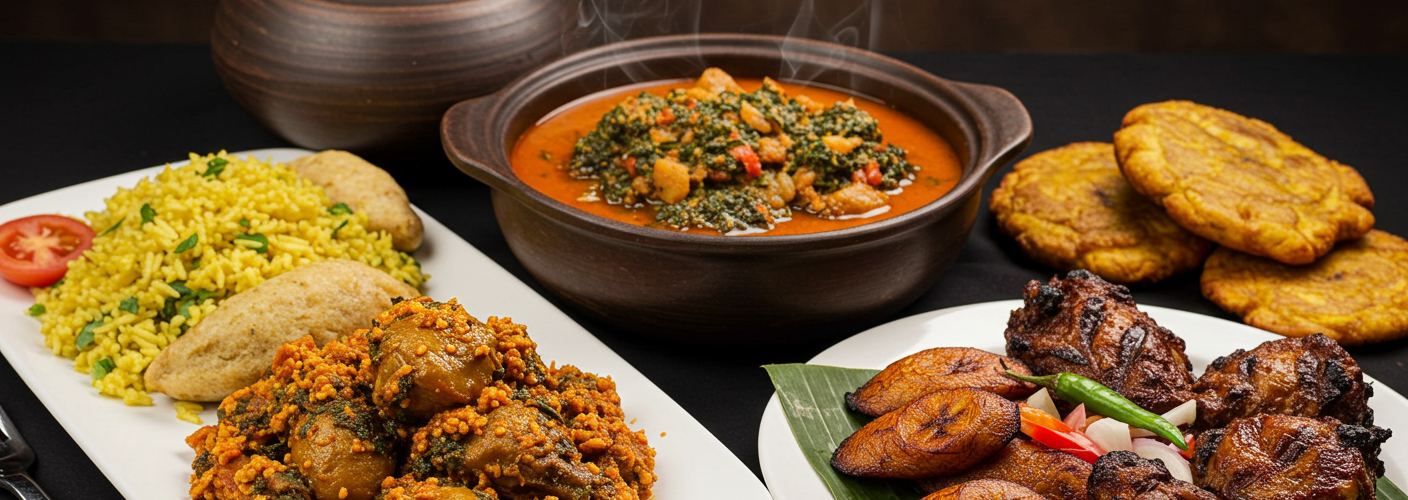Nigeria, a country known for its vibrant cultures and diverse ethnic groups, boasts a culinary landscape as intricate as its history. With over 250 ethnic groups, each contributing unique flavors and cooking techniques, Nigerian food offers a delightful journey through taste and culture that can captivate anyone eager to explore.
Nigerian cuisine is characterized by its use of local ingredients, bold flavors, and vibrant colors. Staple foods often include rice, beans, cassava, maize, and yams, which form the basis of numerous traditional dishes. These staples are not just ingredients; they are a part of the social fabric, often bringing families together around the dining table.
One of the standout dishes is jollof rice, a flavorful one-pot dish made with rice, tomatoes, onions, and a blend of spices. Jollof rice is typically served at weddings, parties, and gatherings, and it ignites friendly rivalries among regions regarding who prepares it best, usually pitting the southwestern Nigerian version against that of the north. To truly experience this dish, pairing it with fried plantains and grilled chicken or fish enhances the flavors and adds layers to this classic staple.
Another iconic dish is pounded yam served with various soups, most notably egusi soup, which is made from ground melon seeds and rich in texture and flavor. The preparation of pounded yam requires skill, as the yam must be boiled and then pounded until it reaches a smooth, stretchy consistency perfect for dipping into the hearty, savory soups. This dish exemplifies the communal aspect of Nigerian dining, as it is often shared among family or group members.
Suya, a popular street food, showcases Nigeria’s love for grilling and spice. It consists of skewered and spicy grilled meat, often served with sliced onions, tomatoes, and cabbage. Suya vendors can be found on streets across cities, offering this tantalizing snack that embodies the essence of Nigerian fast food.
For those with a sweet tooth, chin chin and puff-puff represent delightful treats. Chin chin is a crunchy, fried pastry often enjoyed during festivities, while puff-puff is a soft, deep-fried doughnut-like snack, usually slightly sweet and delightful. Both snacks are perfect companions for social gatherings or casual munching.
Nigerian food is also characterized by the use of an array of spices and herbs that enhance flavors and health benefits. Ingredients like ginger, garlic, and various peppers are staples in many recipes, providing not only taste but also nutritional value.
Regional varieties abound due to Nigeria’s climatic diversity. The northern region is known for its spicier dishes, while the southern regions flavor their foods with an array of spices and seafood, thanks to their proximity to the coast. This geographic influence means that every bite of Nigerian cuisine tells a deeper story about tradition, history, and regional pride.
In Nigeria, sharing a meal is both an art and a fundamental social practice. This communal dining experience transcends the act of eating; it reinforces bonds and strengthens relationships. Whether it’s at a roadside buka (local eatery) or a family gathering, the importance of food in Nigerian culture cannot be overstated.
In conclusion, Nigerian food is a vibrant celebration of its people, history, and geography. Whether you’re experiencing it for the first time or revisiting it, the flavors, aromas, and communal spirit of Nigerian cuisine promise an unforgettable culinary adventure.




Add comment